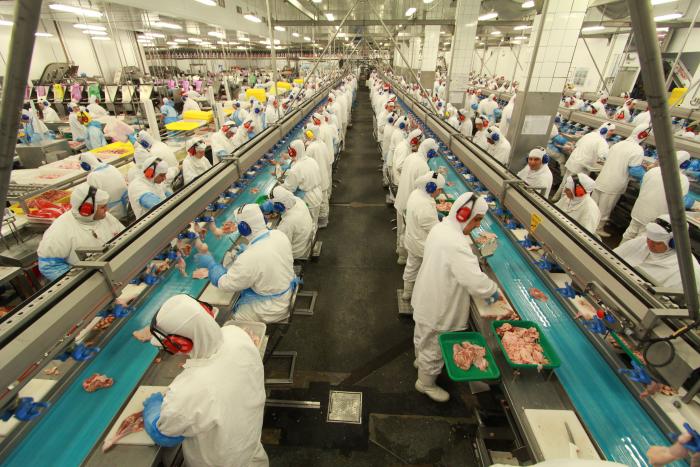São Paulo – Brazilian chicken exports fell overall and rose to Arab states in the first quarter of the year. According to figures made public on Thursday (1) by Brazilian meat lobby ABPA, the industry expects to ship 5.25 million tonnes by this year’s end, up 2.2% from last year’s 5.13 million.
Value-wise, January-to-June exports grossed USD 4.63 billion, sliding down 10.3% compared to the same period last year. ABPA president Ricardo Santin said that despite the fall, data shows a stability. He said export figures from last year’s March were so exceptionally high they skewed the industry’s average in the period.

The top buyer from Brazil was China, accounting for 11% of the industry’s imports. It was followed by the United Arab Emirates at 10%, Japan at 8%, Saudi Arabia at 8%, South Africa at 7%, Philippines at 5%, and Iraq at 4%.
Sales to Arab countries grew. In the H1, the UAE imported USD 478.3 million worth of chicken from Brazil, up 16.5% from the same period last year. Saudi Arabia imported USD 431.6 million, up 5% from 2023’s H1.
Sales to Iraq grew at 28.3% year on year, reaching USD 231.9 million. Arab countries that bought more also included Kuwait, Oman, Qatar, and Jordan. Bahrain and Yemen purchased less.
Instabilities influence chicken exports
Santin credits the expansion in sales to the Middle East to regional instabilities. “In times of tension in the region, countries step up purchases to build stocks,” said the ABPA’s executive. “As a bloc, Middle East and North Africa [MENA] countries are our top customer and are expected to keep growing. Exports to the MENA region grew 15.2% and are expected to remain on that level,” he said.
“We expect they remain our leading client as bloc. Muslim-majority countries in general are major importers from us”, he added.

ABPA’s Market director Luís Rua said Brazil has exported 10,000 tonnes to Algeria, a destination that was opened only last October, and said the top export to the North Africa country is whole chicken. He explained that there are animal size “ranges”, from 700 grams to 1.7 kilogram. Saudis, Rua exemplified, prefer smaller animals. UAE imports 1-1.2-kg animals. Consumers from Algeria, Egypt and Yemen favor 1.2-1.5-kg animals, and this helps cover the industry offer.
Santin said Brazil was quick to contain the outbreak of the Newcastle disease, which stems from a virus circulating among wild pigeons but migrated to an animal at a farm in Anta Gorda municipality in southernmost state Rio Grande do Sul.
Despite having adopted internationally agreed-upon health protocols – informing buyer countries, self-banning exports, and taking other measures – chickens from the South American giant remain banned in Argentina, China, Mexico, and North Macedonia. Restrictions to imports from Rio Grande do Sul state are in force in Bolivia, Chile, Peru, Russia, Saudi Arabia, and Peru.
The estimated impact of these bans, said Santin, are at 50,000-60,000 tonnes. “The self-ban depends on us, but lifting the embargo depends on the importer. What we can do is disclosing our information as quickly as possible, and we’ve been doing that,” he said. “There’s no reason to maintain the ban,” he added.
Read more:
Brazil ships 10,000 tonnes of poultry to Algeria
Newcastle’s impact on Brazil exports to be limited
Translated by Guilherme Miranda




